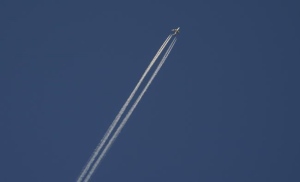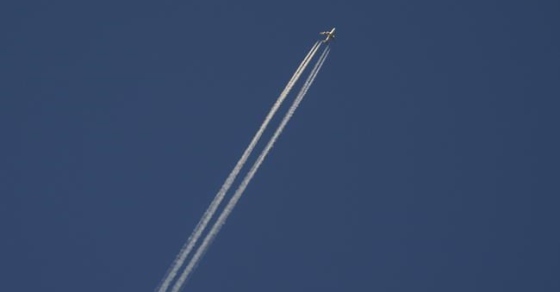
CALGARY — As Canada’s largest airlines struggle to pick up the pieces in the wake of the COVID-19 pandemic, an Edmonton-based discount carrier with ambitious expansion plans has been looking for opportunities amidst the wreckage.
Flair Airlines — which bills itself as an ultra-low-cost carrier offering unbundled, bare-bones fares to budget-conscious travellers — announced Tuesday it is both increasing the size of its fleet and expanding its service to new destinations in Canada and the U.S. The airline said it will add four new Boeing 737 MAX aircraft to its fleet in the spring of 2022.
This brings Flair’s total aircraft count to 16, and will allow the airline to expand its route offerings by 33 per cent. Flair will launch service this spring to new destinations including San Francisco, Nashville and Denver.
It will also launch service between Toronto and Victoria and to Comox, B.C., for the first time.
A privately held company, Flair launched in 2004 as a charter operator and transitioned to regularly scheduled service three years ago. But it’s only been in the last 12 months — a period that coincided with an unprecedented collapse in demand for air travel due to the pandemic — that Flair has been aggressively pursuing growth plans, stating publicly that it wants to grow its fleet to 50 aircraft within the next five years.
In an interview, Flair chief executive Stephen Jones said the pandemic has been an opportunity for his company. Flair has been able to scoop up experienced pilots who have been laid off from major airlines. It has also been able to negotiate good deals with airports that suffered service reductions when major airlines slashed their routes in response to COVID-19.
“We think it’s a great time to be expanding,” Jones said. “You have to take the view that demand will return, and that people want to travel. And when you take that view, the question is when will they do that, and how are you going to be ready for it?”
Jones added the pandemic, along with the two-year grounding of the 737 MAX aircraft worldwide due to deadly crashes in Ethiopia and Indonesia, also helped Flair to negotiate favourable lease terms with Boeing for brand-new, highly fuel efficient aircraft. (Transport Canada cleared the Boeing Max for return to service in January of this year).
In addition to the destinations announced Tuesday, Flair will also start service to six U.S. destinations this fall. The airline says it will grow to serve 28 destinations by spring 2022.
Ultimately, Jones said Flair hopes to expand its route offerings all over Canada and the U.S., but also into Mexico and the Caribbean.
“I think anywhere there is good demand for Canadians to fly to, we should be able to service those markets,” he said.
The ultra-low-cost carrier model — whereby passengers pay a low base fare and then pay extra for add-ons like checked bags, cancellations and changes, and seat selection — has taken off in Europe and the U.S., but remains less common in Canada. Only Flair and WestJet subsidiary Swoop currently operate in the space, though Calgary-based Enerjet and Vancouver-based Canada Jetlines have both indicated their intent to launch discount carriers in the future.
Rick Erickson, an aviation analyst based in Calgary, said part of the problem for independent challengers is the sheer dominance of Air Canada and WestJet in the Canadian market.
“There are two 400-pound gorillas in the cage that generally smash the heck out of any new entrants,” he said.
That’s why Flair’s expansion move is so interesting, Erickson added, in that it takes advantage of a period in time when both Air Canada and WestJet are struggling to rebuild in the wake of the pandemic. The global drop in air travel decimated their revenues and forced both airlines to lay off large portions of their workforce.
“The timing of this tells me these guys (Flair) are shrewd operators,” Erickson said. “There’s an opportunity here, as both Air Canada and WestJet are struggling to get up and going again.”
Flair has also done a good job of “stepping around” the major airlines, Erickson said, by flying into secondary airports. For example, Flair flies to Hollywood-Burbank, Calif., instead of Los Angeles International Airport, and Phoenix-Mesa instead of the much larger Phoenix Sky Harbor International Airport.
“Everything I see from them tells me someone is really thinking. There’s definitely a plan here,” Erickson said. “There is a possibility this could turn into a pretty significant airline.”
Flair says the addition of the new aircraft will create 150 new jobs for flight attendants, pilots and operational support staff. Flair is currently recruiting for 100 pilot jobs to meet the needs of its growing fleet.
This report by The Canadian Press was first published Oct. 19, 2021.
[ad_2]You can read more of the news on source
 Travelsmart
Travelsmart



